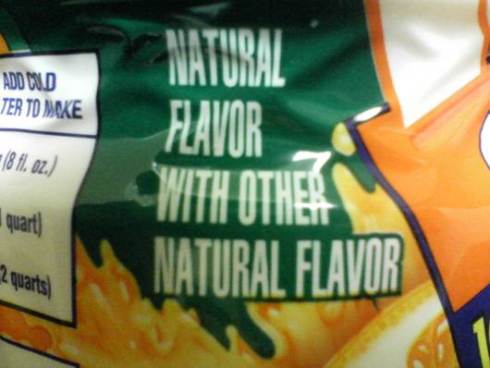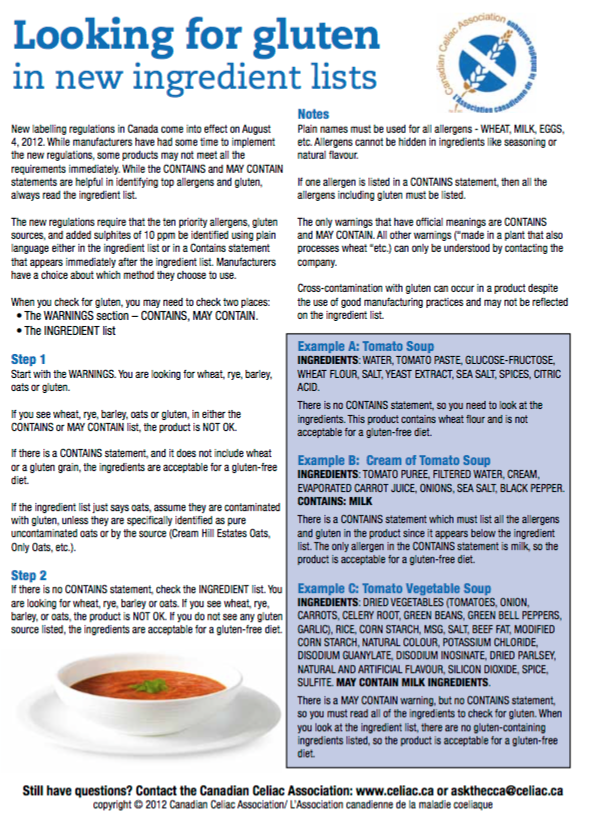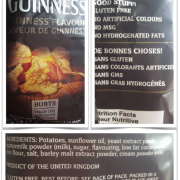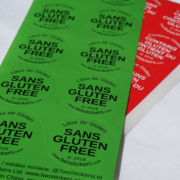Allergy Sufferers and Celiacs: Beware of Natural Flavors
“People with allergies know how important it is to stay away from allergens to which they are sensitive. But what if those substances are in your food and you don’t know it?” by Sydney Ross, Food Safety News, United States.
You can check the food label for certain allergens. The Food Allergen Labeling and Consumer Protection Act (FALCPA) requires food manufacturers to list if one or more of the eight major food allergens are in a natural flavor. This includes: milk, egg, peanuts, tree nuts, wheat, soy, fish and crustacean shellfish. [In Canada, eggs milk, mustard, peanuts , seafood (fish, crustaceans and shellfish), sesame, soy, sulphates, tree nuts and wheat.]
But what if you are allergic to less-common allergens, such as citrus or corn?
Are you safe to consume food products if these allergens are not listed on the label?
The answer depends on whether the product contains “natural flavors” and what ingredients are in those flavors.
While the term “natural” evokes feelings of health and nature, in reality “natural flavors” are typically highly processed chemicals which, by themselves or in combination with other naturally derived chemicals, impart a flavor to prepared food. They are only called “natural” because the original source of the flavor additive is not manmade.
According to FDA, “The term natural flavor or natural flavoring means the essential oil, oleoresin, essence or extractive, protein hydrolysate, distillate, or any product of roasting, heating or enzymolysis, which contains the flavoring constituents derived from a spice, fruit or fruit juice, vegetable or vegetable juice, edible yeast, herb, bark, bud, root, leaf or similar plant material, meat, seafood, poultry, eggs, dairy products, or fermentation products thereof, whose significant function in food is flavoring rather than nutritional.”
 Essentially, anything added for flavor that is not an artificial flavor is a “natural flavor.” And, since food manufacturers do not need to disclose the ingredients of the “natural flavors” added [unless they fall into the top allergen category], it can pretty much include anything, even something to which you are allergic.
Essentially, anything added for flavor that is not an artificial flavor is a “natural flavor.” And, since food manufacturers do not need to disclose the ingredients of the “natural flavors” added [unless they fall into the top allergen category], it can pretty much include anything, even something to which you are allergic.
For those with severe allergies, this can turn eating into a life-threatening activity. You can be vigilant in checking for ingredients before you buy a product, but if there are “natural flavors,” you cannot be certain of what may actually be in there.
Here are a few tips for the allergic food consumer to consider:
- If you experience an allergic reaction and don’t know the cause, add “natural flavors” to your list of suspects.
- If you have eaten a product before with no adverse effects, then the allergen to which you are sensitive is probably not in the product. However, keep in mind that stress can exacerbate allergic reactions, so a product that has small amounts of allergens might make you react when you are stressed more than when you are not.
- Contact the manufacturer and ask if the allergen of concern is in their “natural flavor.”
- Opt for whole foods that don’t include any additives. Whole foods you prepare yourself from scratch are safer than naturally flavored prepared foods.
- Be aware that any foods you eat from a restaurant may also contain “natural flavors,” which will not be disclosed on the menu. The allergen of concern may not be in the product description, but it may still be in the ingredients.
 The “natural flavor” loophole in ingredient labeling means that any food which lists “natural flavors” as an ingredient is potentially hazardous to sensitive people and should be approached with caution.
The “natural flavor” loophole in ingredient labeling means that any food which lists “natural flavors” as an ingredient is potentially hazardous to sensitive people and should be approached with caution.
© Food Safety News • Sign up for a free subscription to Food Safety News here. • More Headlines from Food Safety Resources

As a top allergen in Canada, wheat must be listed if it is the source of a natural ingredient











